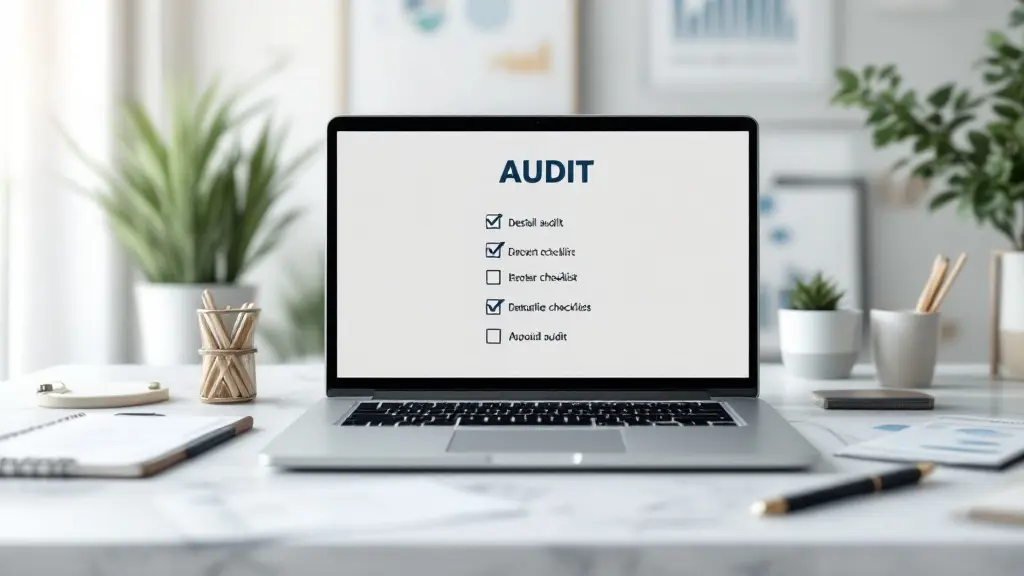Reducing Accounting Costs for Small Businesses
Table of Contents
Most Read
[fusion_dropcap class="fusion-content-tb-dropcap"]R[/fusion_dropcap]educing accounting costs for small businesses is more crucial than ever in today's competitive landscape. Did you know that a significant percentage of small businesses struggle with financial inefficiencies, which can directly impact their profitability? As the backbone of the economy, small businesses need to find ways to manage their finances effectively without breaking the bank. However, with the right strategies and tools, it is entirely possible to streamline accounting processes and cut unnecessary expenses. In this blog post, we’ll explore various actionable methods that can help you not only reduce your accounting costs but also enhance your overall financial health, enabling you to focus on growing your business.
Understanding the Importance of Accounting Cost Management for Small Businesses
Managing accounting costs effectively is crucial for small businesses aiming to boost profitability. High accounting expenses can siphon valuable resources away from project development, marketing, and overall growth. With a better understanding of these costs, small business owners can make informed decisions that align with their financial goals.
The Impact of Accounting Costs on Small Business Profitability
Accounting costs include more than just salaries or fees paid to accountants; they encompass all financial activities required to keep a business afloat. Potential impacts on profitability include:
-
Reduced cash flow due to unexpected tax liabilities
-
High overhead costs associated with hiring full-time accounting staff
-
Increased reliance on costly external services
Common Accounting Expenses Small Businesses Face
Identifying common accounting expenses can help business owners pinpoint areas for potential savings. Key areas to consider include:
-
Payroll processing fees
-
Tax preparation and filing costs
-
Software subscriptions for accounting tools
-
Professional fees for external auditors or consultants
Identifying Areas for Cost Reduction
Once business owners understand the significance of accounting costs, the next step involves identifying areas where they can effectively reduce expenditures. This includes analyzing current accounting practices, recognizing unnecessary expenditures, and leveraging technology to streamline processes.
Analysis of Current Accounting Practices
Ongoing evaluation of existing accounting practices can uncover inefficiencies and cost-cutting opportunities. Consider the following steps:
-
Conduct a comprehensive review of monthly bookkeeping
-
Examine the frequency of financial reporting
-
Evaluate manual versus automated processes
Recognizing Unnecessary Expenditures
It's critical for small business owners to be vigilant about unnecessary costs that do not directly contribute to business growth. Assessing recurring fees, redundant services, and overpriced software packages can lead to substantial savings.
Leveraging Technology to Streamline Processes
Investing in technology can be a game changer for reducing accounting costs for small businesses. Modern software and automated systems can help facilitate:
-
Simplified expense tracking
-
Streamlined invoicing processes
-
Enhanced financial reporting efficiency
For more insights on leveraging technology in finance, visit Intuit for tools and resources tailored for small businesses.
By recognizing these areas of potential cost reduction, small business owners can create a budget that not only accommodates accounting needs but also promotes growth and sustainability.
Outsourcing vs. In-House Accounting
When it comes to managing accounting tasks, small businesses often face the dilemma of choosing between outsourcing these responsibilities or handling them in-house. This decision can significantly impact the efficiency and cost of accounting functions.
Pros and Cons of Outsourcing Accounting Tasks
Outsourcing can provide flexibility and expert knowledge, but it may also come with its own set of challenges. Here’s a look at the advantages and disadvantages:
Advantages of Outsourcing
-
Cost Savings: Hiring external accountants can reduce the costs associated with full-time staff, including benefits and salaries.
-
Expertise: Outsourced firms often provide specialized knowledge, ensuring compliance and accurate reporting.
-
Time Efficiency: Outsourcing frees up internal resources, allowing business owners and staff to focus on core functions and strategic planning.
Disadvantages of Outsourcing
-
Less Control: An external firm may not have the same understanding of the business's unique needs.
-
Data Security Risks: Sharing sensitive financial information with third-party providers can pose risks of data breaches.
-
Communication Challenges: Remote accounting services may lead to delays in response times or misunderstandings.
When to Consider Hiring an External Accounting Service
Small businesses should evaluate their specific needs to determine if outsourcing is the right choice. Consider factors such as:
-
Business complexity: If tax laws and compliance requirements are overwhelming, external expertise may be necessary.
-
Volume of transactions: High transaction volumes might benefit from an efficient accounting service.
-
Budget constraints: If hiring in-house is not feasible, outsourcing becomes a viable solution.
Cost Comparisons: Outsourcing vs. In-House
Understanding the financial implications of outsourcing versus in-house staffing is crucial. Here’s a quick breakdown of potential costs:
-
In-House Costs:
-
Salaries and trainings
-
Benefits (healthcare, retirement)
-
Office space, equipment, and software
-
-
Outsourcing Costs:
-
Monthly or annual service fees
-
Potential fees for additional services (e.g., tax filing)
-
To optimize your business's financial health, weigh these cost factors carefully when deciding on the best accounting approach.
For more information on how to choose between outsourcing and in-house services, check out resources from Xero, which provides solutions designed for small businesses.
Utilizing Accounting Software for Efficiency
In today’s digital age, leveraging technology is essential for small businesses looking to streamline operations and reduce costs. Accounting software can significantly enhance efficiency and accuracy in financial management, ultimately aiding in reducing accounting costs for small businesses.
Overview of Popular Accounting Software Options
There are several accounting software options available that cater specifically to small businesses. Popular choices include:
-
QuickBooks: Known for its user-friendly interface and extensive features for invoicing and expense tracking.
-
FreshBooks: Ideal for service-based businesses, it offers excellent invoicing and time-tracking capabilities.
-
Xero: This cloud-based solution is highly regarded for its collaboration features and real-time reporting.
-
Zoho Books: A cost-effective choice that provides comprehensive tools for managing finances and client relationships.
Benefits of Automation in Accounting Processes
Using accounting software not only makes tasks easier but can also lead to substantial cost savings. Here are some key benefits:
-
Time Saving: Automated invoicing and bookkeeping significantly reduce manual entry, freeing up valuable time.
-
Improved Accuracy: Software reduces human error, leading to more precise financial records.
-
Real-Time Financial Insights: Instant access to financial data allows for better decision-making and cash flow management.
Cost Savings Associated with Using Accounting Software
Investing in the right accounting software can yield significant savings in the long run. Some potential financial benefits include:
-
Lower Labor Costs: By reducing the time staff spend on bookkeeping, businesses can allocate resources to more strategic activities.
-
Fewer Compliance Issues: Accurate records minimize the risk of costly penalties during audits or tax filings.
-
Streamlined Operations: Enhanced efficiency can lead to improved workflow, minimizing bottlenecks in financial processes.
To explore more about accounting software solutions and find the right tool for your business, visit Intuit, which offers resources and software specifically designed for small business accounting needs.
Implementing Best Practices in Financial Management
Establishing solid financial management practices is fundamental for small businesses looking to control their accounting costs effectively. Best practices not only streamline financial operations but also pave the way for sustained growth and profitability.
Regular Financial Reviews and Audits
Consistent financial reviews and audits play a crucial role in recognizing areas for improvement and cost-saving opportunities. Here are some strategies to implement:
-
Monthly Financial Statements: Regularly review profit and loss statements, balance sheets, and cash flow statements to stay informed about financial health.
-
Conduct Internal Audits: Schedule periodic internal audits to identify discrepancies and rectify issues before they escalate.
-
Set Financial Goals: Establish short-term and long-term financial objectives that align with your business strategy.
Cash Flow Management Strategies
Effective cash flow management is vital in maintaining liquidity and minimizing unnecessary borrowing costs. Key strategies include:
-
Forecasting Cash Flow: Create forecasts that estimate cash inflows and outflows, allowing better planning for expenses.
-
Implementing Timely Invoicing: Ensure invoices are sent promptly and follow up on outstanding payments to maintain cash flow.
-
Controlling Inventory Costs: Manage inventory levels efficiently to reduce excess stock and storage costs.
The Importance of Budgeting and Forecasting
A well-structured budget is a powerful tool for reducing accounting costs for small businesses. It provides a roadmap for expected income and expenditures, driving better financial decisions. Here’s how to create an effective budget:
-
Categorize Expenses: Break down costs into categories such as fixed, variable, and discretionary, making it easier to identify areas for cuts.
-
Incorporate Contingencies: Account for unexpected expenses in your budget to avoid financial strain.
-
Review and Adjust Regularly: Keep the budget dynamic; review it regularly and adjust based on performance and changing conditions.
By implementing these best practices, small businesses can not only streamline their financial management but also significantly reduce accounting costs, ultimately enhancing overall success.
Tax Efficiency and Planning
Effective tax planning is essential for small businesses aiming to minimize their tax liabilities while ensuring compliance. By being proactive about tax efficiency, businesses can play a significant role in reducing accounting costs for small businesses.
Understanding Tax Implications for Small Businesses
Navigating the complexities of tax regulations can be daunting, but understanding these implications is the first step toward effective tax planning. Key considerations include:
-
Types of Taxes: Familiarize yourself with various taxes applicable to your business, such as income tax, sales tax, payroll tax, and property tax.
-
Tax Deductions and Credits: Identify potential deductions and credits that can significantly reduce your taxable income, such as expenses related to equipment, operating costs, and business travel.
Strategies to Minimize Tax Liabilities
Implementing sound tax strategies can help small businesses lower their tax burdens. Here are some effective approaches:
-
Contribute to Retirement Plans: Utilize retirement accounts like 401(k) or IRAs to defer taxable income while also saving for the future.
-
Track Business Expenses: Maintain thorough records of all business-related expenses that are tax-deductible to reduce taxable income.
-
Consider Legal Structure: Evaluate the business structure (LLC, S-Corp, etc.) to ensure the most advantageous tax treatment.
The Role of Professional Tax Services in Reducing Costs
Engaging professional tax services can provide numerous benefits that contribute to long-term savings. This includes:
-
Expert Guidance: Tax professionals possess the knowledge needed to navigate complex tax laws and advise on best practices.
-
Minimizing Errors: Professional preparation minimizes the risk of errors that could lead to costly penalties or audits.
-
Time Savings: Focusing on core business operations while experts handle tax matters can lead to improved efficiency and productivity.
For more insights on tax strategies and effective planning, consider visiting H&R Block, which offers resources tailored to small business tax management.
Training and Development for In-House Staff
Investing in the training and development of in-house staff is a strategic approach for small businesses looking to effectively manage their accounting tasks and reduce costs. A knowledgeable team can perform essential functions more efficiently, ultimately leading to lower accounting expenditures.
Benefits of a Knowledgeable Team for Cost Savings
Having trained staff can greatly contribute to reducing accounting costs for small businesses. Here’s how:
-
Enhanced Accuracy: Well-trained employees are more likely to produce accurate financial records, reducing the risk of errors that could lead to costly penalties.
-
Improved Efficiency: Knowledgeable staff can complete tasks faster, minimizing labor costs associated with time-consuming accounting processes.
-
Proactive Problem-Solving: A trained team can identify potential issues early, allowing businesses to address problems before they escalate and incur additional costs.
Investing in Employee Training for Accounting Tasks
Consider implementing the following training strategies to improve your team's accounting capabilities:
-
Regular Workshops: Hosting regular training sessions on accounting best practices, software updates, and tax compliance can keep skills sharp.
-
Online Courses: Encourage staff to take advantage of online courses related to accounting and financial management, allowing for flexible learning.
-
Certification Programs: Supporting employees in obtaining relevant certifications enhances their expertise and contributes to better financial management.
Continuing Education and Staying Updated with Regulations
The financial landscape is constantly evolving, and it’s essential for accounting professionals to stay informed about the latest regulations and standards. Businesses should encourage:
-
Continuous Learning: Support your team in pursuing continuous education opportunities to deepen their understanding of accounting and finance.
-
Networking Opportunities: Encourage participation in industry conferences, seminars, and networking events to share knowledge and gain insights from peers.
By focusing on staff training and development, small businesses can cultivate a skilled workforce capable of managing financial tasks effectively, resulting in significant savings and improved fiscal health. For additional resources on employee training, visit LinkedIn Learning, which offers a wide range of courses tailored to finance and accounting professionals.
Monitoring and Adjusting Your Accounting Strategies
Continuous monitoring and adjustment of accounting strategies are crucial for small businesses aiming to optimize financial performance and reduce accounting costs. By regularly assessing financial practices, businesses can identify inefficiencies and adapt to changing economic conditions.
Key Performance Indicators to Track Accounting Effectiveness
Monitoring specific key performance indicators (KPIs) can provide insights into the effectiveness of accounting strategies. Key KPIs to consider include:
-
Operating Expenses Ratio: This measures operating expenses as a percentage of revenue, helping identify cost management efficiency.
-
Days Sales Outstanding (DSO): DSO tracks how quickly accounts receivable are collected, indicating cash flow efficiency.
-
Gross Profit Margin: This percentage shows the relationship between revenue and cost of goods sold, providing insight into overall profitability.
Adjusting Strategies Based on Financial Performance
Once key performance indicators are established, small businesses should regularly review financial performance and be open to adjustments. Here are some strategies to consider:
-
Regular Financial Reviews: Schedule monthly or quarterly reviews of financial statements to assess performance against KPIs.
-
Identifying Inefficiencies: Use data to pinpoint areas of high expenditure or low return on investment, and develop targeted strategies to address these issues.
-
Aim for Continuous Improvement: Implement a culture of continuous improvement by regularly soliciting feedback from accounting staff and management on processes and practices.
Maintaining Flexibility to Adapt to Business Changes
The ability to adapt to changes in the market or business environment is essential for reducing accounting costs. Businesses should focus on:
-
Scenario Planning: Develop scenarios to assess how different economic conditions could impact your accounting and financial operations.
-
Responsive Financial Policies: Ensure that financial policies are flexible enough to adapt to rapid changes in the business landscape.
-
Regular Forecasting: Continuously refine operational budgets and forecasts based on the latest financial data and market trends.
By actively monitoring and adjusting accounting strategies, small businesses can significantly enhance their financial efficiency, ultimately aiding in reducing accounting costs. For further insights on effective financial strategy monitoring, consider exploring resources from CFO.com, which offers in-depth analysis and advice tailored to finance professionals.
Conclusion
In conclusion, reducing accounting costs for small businesses is not just about cutting expenses; it's about optimizing processes, leveraging technology, and making strategic choices that support long-term financial health. By implementing the right strategies, small business owners can improve their bottom line while focusing on growth and operational efficiency.
Recap of Strategies for Reducing Accounting Costs
Here’s a recap of the key strategies discussed throughout the blog:
-
Identifying Areas for Cost Reduction: Analyze both in-house and outsourced accounting functions to uncover potential savings.
-
Utilizing Accounting Software: Embrace modern technology to enhance efficiency and reduce time spent on manual tasks.
-
Implementing Best Practices: Adopt sound financial management practices such as regular reviews, cash flow monitoring, and comprehensive budgeting.
-
Engaging in Effective Tax Planning: Be proactive about tax strategies that can minimize liabilities and bolster cash flow.
-
Investing in Employee Training: Develop your in-house team's skills to ensure accuracy and efficiency in accounting tasks.
-
Monitoring and Adjusting Strategies: Continuously evaluate financial performance to adapt strategies as necessary.
Encouragement to Take Proactive Steps for Financial Health
By taking these proactive steps, small business owners can create a more informed and strategic approach to their accounting practices. Ultimately, the goal should be to maintain financial health while positioning the business for sustainable growth.
For additional resources and guidance on managing your financial strategy effectively, consider exploring Forbes, which offers a wealth of articles and advice tailored to small businesses.
Frequently Asked Questions About Reducing Accounting Costs for Small Businesses
Many small business owners have questions and concerns regarding the processes and strategies involved in reducing accounting costs. This section addresses some common queries to provide further clarity on effective financial management practices.
What are the first steps to take for reducing accounting costs?
-
Evaluate Current Expenses: Begin with a thorough analysis of your current accounting expenses, identifying areas where costs can be lowered.
-
Consider Outsourcing: Explore whether outsourcing certain accounting tasks could provide savings compared to hiring in-house staff.
-
Implement Technology Solutions: Invest in accounting software that can automate processes and reduce manual entry work.
How can technology help in reducing accounting costs?
Using accounting software can significantly minimize costs by:
-
Automating Routine Tasks: Such as invoicing and expense tracking, freeing up time for staff to focus on higher-level tasks.
-
Improving Accuracy: Reducing the likelihood of costly errors from manual entry.
-
Providing Real-Time Insights: Enabling businesses to make informed financial decisions quickly and effectively.
How often should I review my accounting strategies?
-
Regularly Scheduled Audits: Conduct formal evaluations on a quarterly or annual basis to assess your financial health.
-
Monthly Check-Ins: Implement monthly reviews of financial statements to monitor performance against key performance indicators (KPIs).
What role does employee training play in reducing accounting costs?
Effective training leads to:
-
Enhanced Efficiency: Employees who are knowledgeable about accounting processes can work faster and more accurately.
-
Proactive Problem-Solving: Well-trained employees are better equipped to identify and resolve financial issues early, preventing costly mistakes.
Are there any external resources or tools I should consider?
Absolutely! Many platforms provide valuable resources for small business owners. For further information, check out SCORE, where you can find free business advice, mentoring, and a wealth of resources tailored to helping small businesses succeed.
By addressing these frequently asked questions, small business owners can gain a clearer understanding of the steps necessary for reducing accounting costs and enhancing their overall financial management strategies.
What are some effective strategies for reducing accounting costs?
Effective strategies for reducing accounting costs include assessing existing expenses, utilizing accounting software to automate tasks, outsourcing non-core accounting functions, and investing in employee training. Each of these actions can lead to significant cost savings and improved operational efficiency.
How can accounting software help save money?
Accounting software helps save money by automating routine tasks such as invoicing, expense tracking, and financial reporting, which reduces the need for manual labor. This not only increases accuracy but also allows staff to focus on strategic activities that can enhance business growth.
Is it better to outsource accounting or keep it in-house?
The decision to outsource accounting functions or keep them in-house depends on the specific needs and resources of the business. Outsourcing can provide access to expertise and reduce costs, while in-house accounting can offer more control and customization. Evaluating your unique situation will help determine the best option.
How often should I conduct financial reviews?
It’s advisable to conduct financial reviews on a monthly basis, along with more comprehensive audits quarterly or annually. Regular reviews will help identify areas of improvement, allowing for timely adjustments to your financial practices and better cost management.
What role does employee training play in accounting efficiency?
Employee training is crucial for accounting efficiency because it empowers staff with the skills and knowledge needed to perform their tasks accurately and quickly. A well-trained team can significantly reduce errors, increase productivity, and ultimately lower accounting costs for the business.









